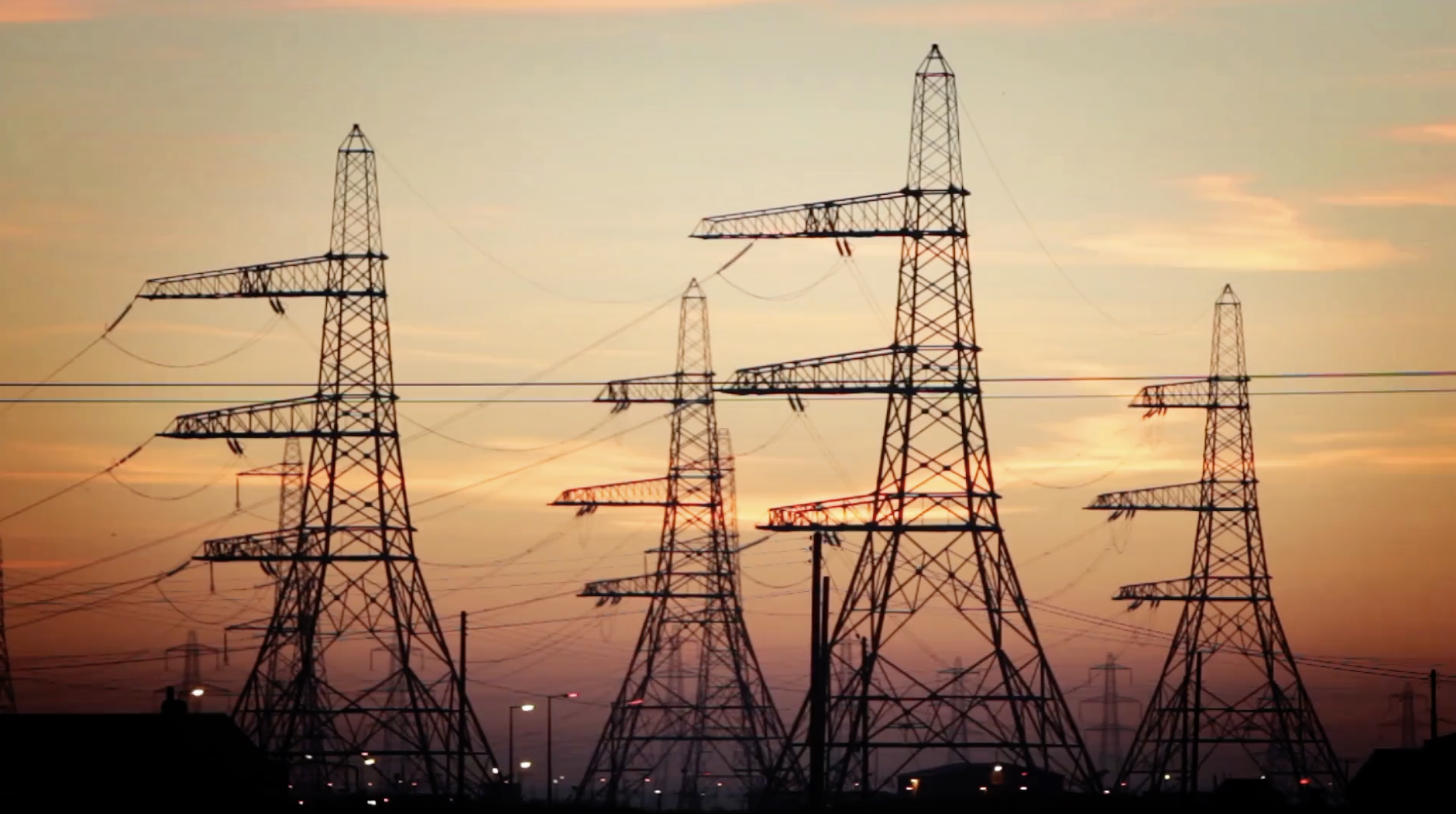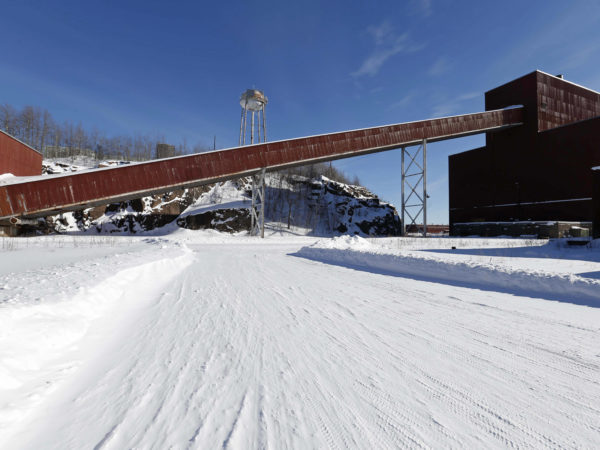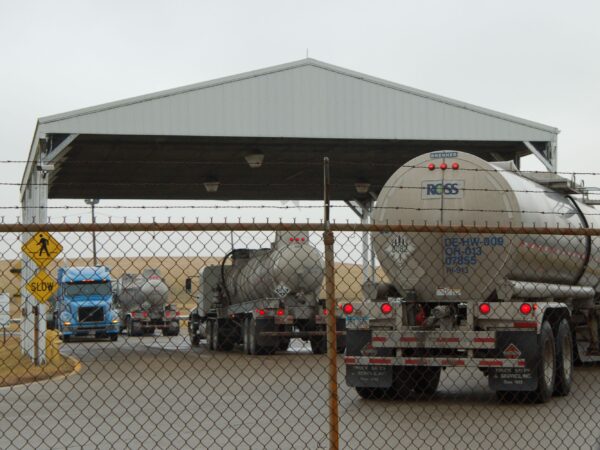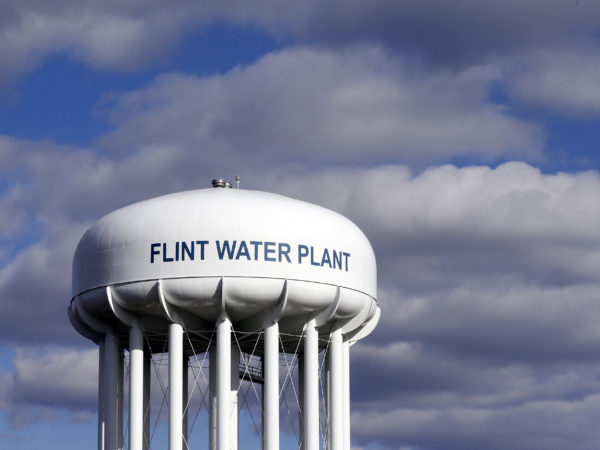
Melting ice. Wildfire smoke. Crop losses. Climate change is already having an impact on the Great Lakes region. According to a 2022 report by the Intergovernmental Panel on Climate Change, in order to limit global warming to 2 degrees Celsius, humanity would have to reach net-zero emissions by the 2070s. For a more ambitious goal of 1.5 degrees Celsius, we’d have to get to net zero by the 2050s. Last year, US emissions declined, but not enough to meet the Biden administration’s stated goal of cutting them in half by 2030.
At the same time, politicians from both sides of the aisle have promised that they will fix America’s problems in part by cutting red tape and building more stuff. “In America, it takes too long and it costs too much to build,” Vice President Kamala Harris said at a campaign event in September. She promised to “reform permitting” in order to speed up infrastructure and other projects. During his time in office, former President Donald Trump cut back on review of infrastructure projects in order to speed up permitting.
The Energy Permitting Reform Act (EPRA), which is currently under consideration in the U.S. Senate, sits at the intersection of these two trends. It would both make it easier to construct fossil fuel plants, such as by expanding oil and gas leasing on federal lands, and make things easier to construct electric transmission lines, which are sorely needed by the renewable energy industry. This follows state-level bills that have focused specifically on renewable energy permitting and siting, such as those passed in Michigan and Minnesota.
EPRA’s “all of the above” approach has been divisive, with centrist groups and some in the renewable energy industry praising the bill. On the other hand, many environmental activists and some climate scientists have been highly critical.
“Their mission is to protect the environment,” said Alex Klass, co-director of the Environmental and Energy Law Program at Michigan Law. “The clean energy industry, their desire is to build clean energy projects that are going to make them money. That’s not a bad thing, but they have different reasons for being in different missions.”
The divide over EPRA highlights an area of tension between two environmentalist goals: building clean energy infrastructure as fast as possible, and conserving natural areas. For example, some environmentalists are concerned that the Cardinal-Hickory Creek Transmission Line could harm the Upper Mississippi River National Wildlife Refuge in Wisconsin.
“I think the environmental community grew up opposing things, and a lot of the culture, tools, and methods they have are how to block things, which mostly over recent decades has helped clean things up,” said Rob Gramlich, a clean energy consultant at Grid Strategies. “But we’re in a different mode right now, where the best way to clean things up is to rapidly scale the carbon-free and emissions-free power sources we have.”
A central question in the debate over EPRA is whether the trade-off between fossil fuels and transmission lines is worth it for the environment. The centrist think tank and advocacy group Third Way has produced a model which they claim shows that EPRA would reduce emissions overall. Even in the worst-case scenario, they argue, EPRA would still lead to an overall decrease in emissions.
“Rather than an exact number, we’ve shown a range of outcomes,” said Shane Londagin, a policy advisor at Third Way. “The interconnection queue is filled with energy projects waiting to join the grid, 95% of which are clean. Transmission capacity is the core constraint to those projects joining the grid.”
According to Liesl Clark, director of climate action engagement at the University of Michigan, her state in particular would benefit from more transmission.
“We need a grid that is bigger than the weather, so that we can balance out the shifts that we see in the weather-dependent resources,” she said.
Other experts, while they acknowledge that more transmission would be useful, dispute Third Way’s conclusion that EPRA would lower emissions overall. In addition, they argue that we should also consider more localized pollution that, while it may not contribute to climate change, still hurts people, which EPRA’s fossil fuel and mining-related provisions could make worse.
“We need to eliminate emissions from combustion fuels, mining fuels and transition to clean, renewable energy just to eliminate 7 million air pollution deaths each year worldwide, and global warming and energy insecurity problems which are driven by fossil gas, fossil oil, and coal, as well as bioenergy,” said Mark Jacobson, a professor of environmental engineering at Stanford who signed a letter from scientists opposing EPRA. “We can’t handle any more use of fossil fuels.”
Jacobson argued that proponents of EPRA were ignoring potentially consequential sources of greenhouse gas emissions, such as shipping liquid natural gas. According to Jacobson, ships often emit black carbon, a strong pollutant. “Black carbon is the second-leading cause of global warming, after carbon dioxide. But they don’t even include this in their analysis.”
Proponents of EPRA argue that while it may not be a perfect deal for the climate, it is the best deal that can make it through the political process.
“My own view is just as a policy matter, our policy should be towards supporting clean energy and not supporting more fossil fuels,” said Klass, the law professor. “I totally understand why the clean energy industry is in favor of this. The argument is, this is as good as we’re going to get out of Congress.”
However, not everyone agrees that EPRA is the best-case scenario. Some critics of the bill argue that not all perspectives were included at the negotiating table when EPRA was being written.
“People that like the bill say, ‘well, this is the best we could ever get, so we should take it,’ and you’re like, ‘well, how do you know?’” said Brett Hartl, government affairs director at the Center for Biological Diversity, which signed on to another letter opposing EPRA. “This entire process only occurred over a period of maybe a year and a half, and it was negotiated by two of the most fossil fuel-friendly senators.”
As for how EPRA might affect the Great Lakes region in particular, Hartl, who opposes the bill, said that we might actually be on the better end of things, because we would reap the benefits of additional transmission without getting as much localized pollution from mining or fossil fuel extraction. However, he emphasized that everyone would be hurt if EPRA ends up making climate change worse.
“This is why this is a tough bill. There are probably some benefits from better interconnected transmission, getting wind out of the Midwest, or bringing in hydro from Canada. Some of that can be positive,” said Hartl. “The impacts of this legislation won’t be felt evenly.”
Clark, of the University of Michigan, echoed Hartl’s sentiment:
“This isn’t exactly what the enviros would want. I don’t think it’s exactly what the other side, broadly speaking, wants either. You get to good legislation when there’s something in it for everybody, but nothing there is everyone’s wishlist.”
The most likely time for EPRA to reach the Senate floor will be during the “lame duck” session, between the election and the convening of a new House and Senate. These sessions usually last from mid-November to late December or early January. It is at that time that the fate of this complex and controversial bill will be decided.
Catch more news at Great Lakes Now:
Expecting smoke to be a more frequent part of seasonal planning
Featured image: Time lapse of electricity pylons at dusk. (Photo Credit: Great Lakes Now)




